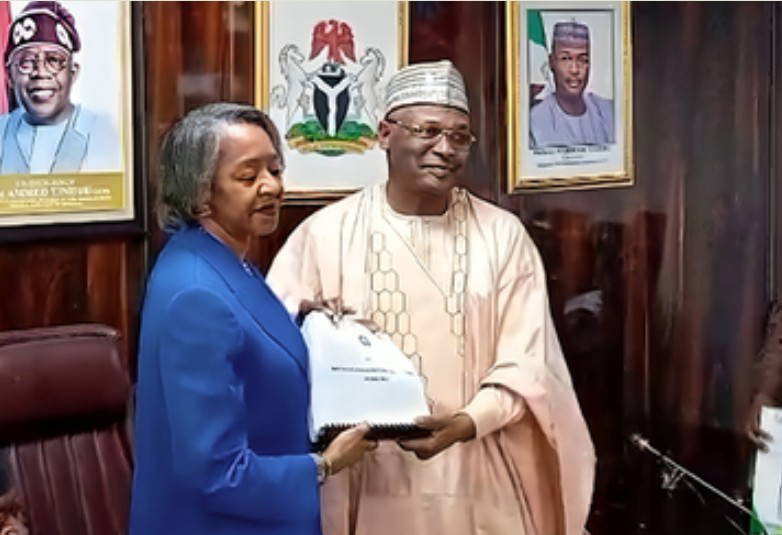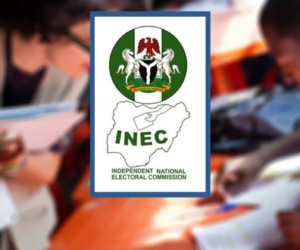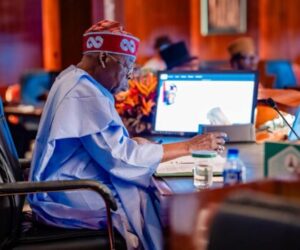The Independent National Electoral Commission (INEC), after a review of the 10-year tenure of its immediate past chairman, Prof Mahmood Yakubu, said the period between 2015 and 2025 was one of the most transformative in the nation’s electoral history.
This was contained in two comprehensive publications entitled Election Management in Nigeria: 2015–2025 and Innovations in Electoral Technology: 2015–2025.
The Commission said the last decade deepened the use of technology, strengthened the legal framework, expanded voter access, and improved transparency and citizens’ trust in elections.
Appointed in November 2015 by President Muhammadu Buhari and reappointed in 2020, Yakubu is the first INEC chairman to serve two full terms.
His tenure witnessed two general elections, those of 2019 and 2023, alongside 19 off-cycle governorship polls and hundreds of supplementary and bye-elections across 4,500 constituencies nationwide.
The reports noted that Yakubu’s era witnessed far-reaching innovations that reshaped transparency and accountability in the conduct of elections, including the introduction of the Bimodal Voter Accreditation System (BVAS), the INEC Result Viewing Portal (IReV), and the INEC Voter Enrolment Device (IVED).
Yakubu, in his foreword, admitted that the Commission grappled with persistent issues such as electoral violence, vote buying, and court injunctions.
“The decade between 2015 and 2025 has been one of the most momentous in the history of election management in Nigeria. Measured, custom-tailored and forward-looking reforms, driven by lessons learnt and peer review processes, were ultimately meant to improve the conduct of elections and trust in the electoral process…
“Issues such as multiple litigations in which the Commission is joined, conflicting court orders, and logistical challenges have posed serious threats to the smooth conduct of elections… Nevertheless, the Commission responded with reforms, stakeholder engagement, and improved coordination with security agencies,” he said.
The publications detailed how Yakubu’s administration consolidated Nigeria’s shift from a largely manual to a fully digital election management system.
Under his watch, the Commission deployed the INEC Voter Enrolment Device (IVED) in 2021 to modernise voter registration through biometric and facial capture, replacing outdated data capture machines. Complementing this was the Continuous Voter Registration (CVR) Online Portal, which allowed citizens to pre-register remotely — a first in Nigeria’s electoral history.
To strengthen integrity during accreditation, INEC introduced the Bimodal Voter Accreditation System (BVAS) in 2021, which authenticates voters using fingerprint and facial recognition and uploads polling unit results directly to the INEC Result Viewing Portal (IReV) for public access.
The Commission noted that these tools, backed by the 2022 Electoral Act, ushered in a new era of transparency and public ownership of the process.
“Technology became the invisible yet invaluable infrastructure for conducting credible elections through voter authentication, logistics coordination, and real-time result viewing,” the report stated.
Other innovations launched during the decade include the Election Results Management System (ERMS), Collation and Returning Officers Management System (CROMS), INEC Operations Management and Information System (IOMIS), and Political Finance Reporting and Auditing System (PFRAS), designed to improve result storage, staff management, and party finance transparency.
One of the highlights of Yakubu’s tenure was the successful passage of the Electoral Act 2022, which legally recognised the electronic transmission of results and empowered INEC to deploy technology of its choice for voter registration, accreditation, and result management.
The Commission said the Act enhanced INEC’s independence, improved transparency, and aligned Nigeria’s elections with global best practices.
During this period, INEC also expanded polling units for the first time in 25 years, increasing the number from 119,974 to 176,846, thereby improving voter access and reducing overcrowding.
Despite the achievements, the documents admitted that INEC’s work was not without challenges, saying persistent insecurity, electoral violence, vote buying, multiple court injunctions, and logistics disruptions occasionally undermined elections.
Yakubu acknowledged that the Commission faced attacks on over 50 of its offices between 2019 and 2023 but said it responded with innovation, resilience, and reform.
INEC said it would continue to strengthen partnerships with international and regional electoral bodies to share knowledge and experiences in election technology.








